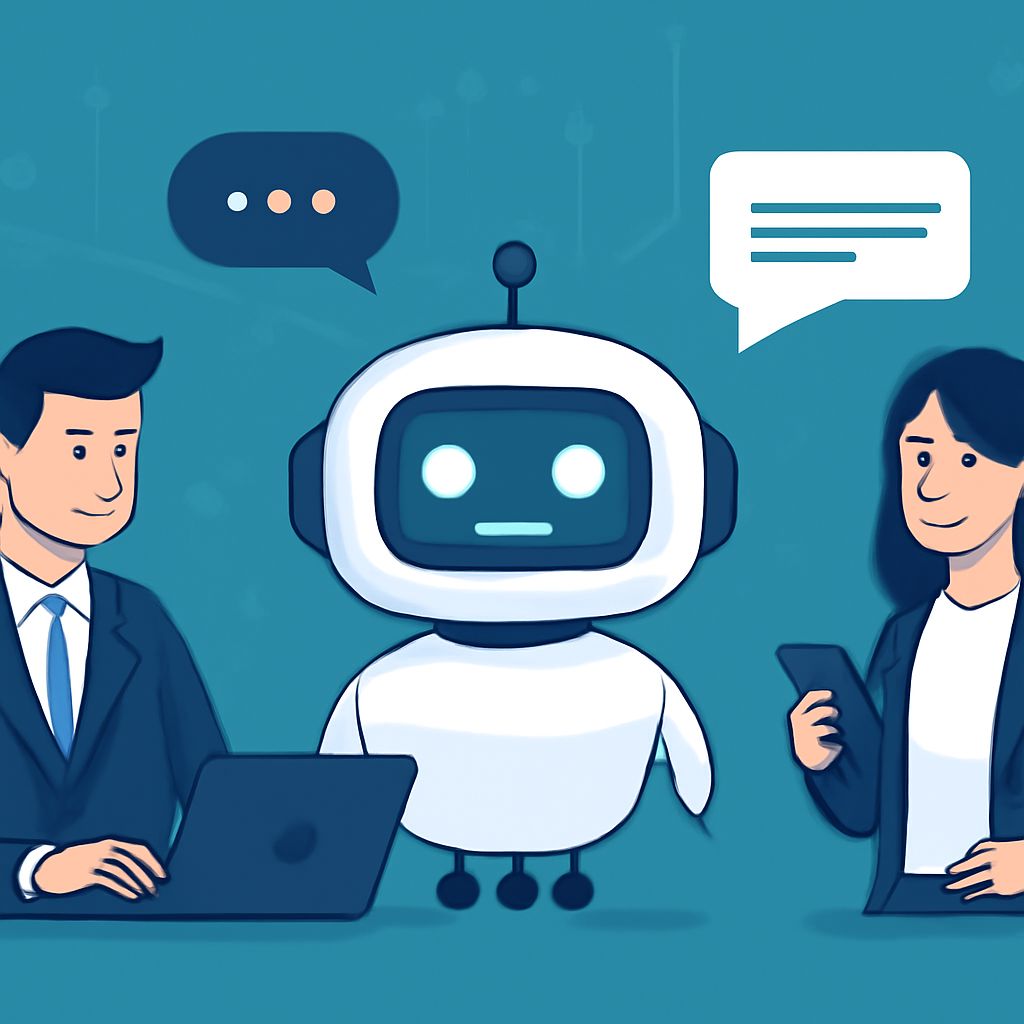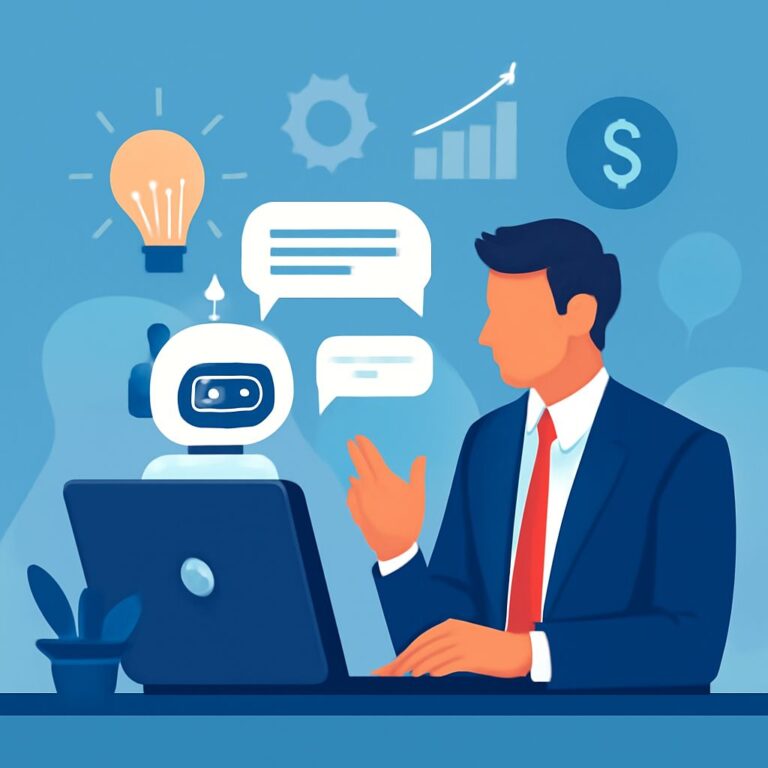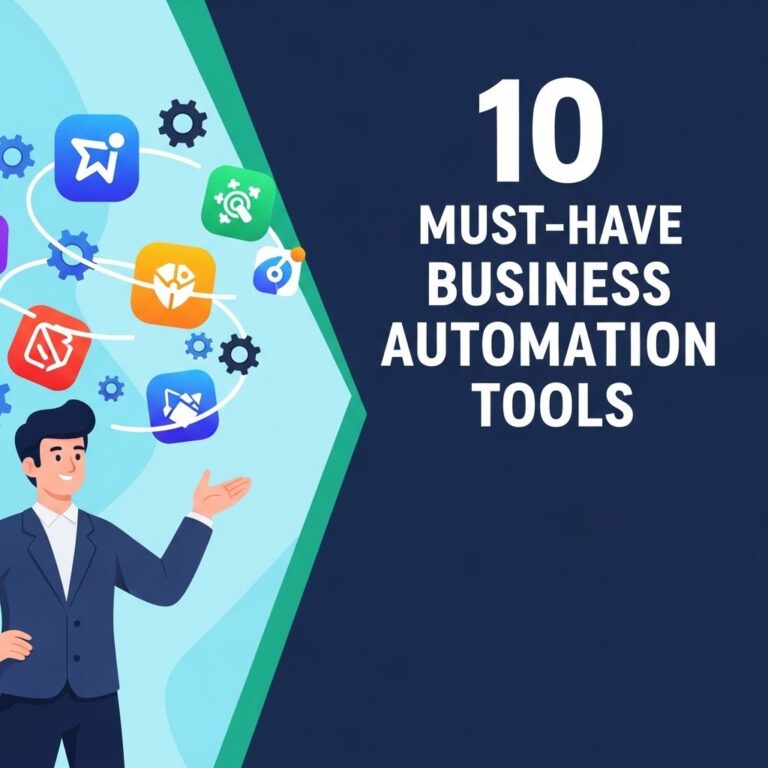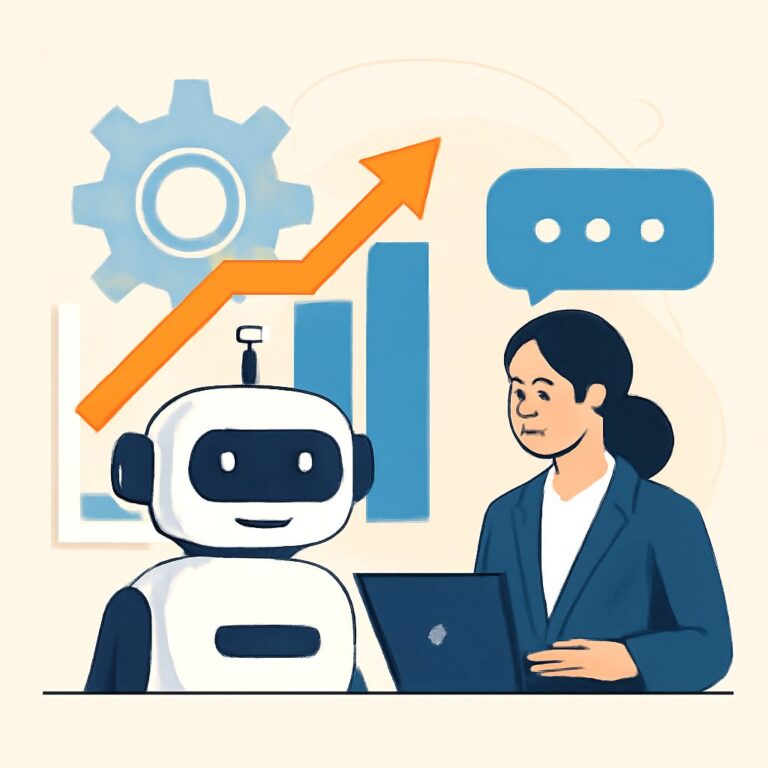Table of Contents
Introduction to Chatbot Automation
In 2023, chatbot automation has firmly established itself as a pivotal component in the evolution of business communication. As organizations strive for efficiency and enhanced customer experiences, chatbots have emerged as indispensable tools that streamline interactions, reduce response times, and augment operational capabilities. This article explores how chatbot automation is transforming business communication and what this means for future developments in the industry.
Chatbot automation is transforming business communication by streamlining interactions and enhancing customer engagement. With the ability to handle inquiries 24/7 and provide instant responses, businesses can improve efficiency and increase satisfaction levels. This technological shift not only reduces operational costs but also allows teams to focus on more complex tasks, paving the way for a more dynamic workplace environment. For those looking to visualize their strategies, create mockups for desktops that depict chatbot integrations can be beneficial.
The Rise of Chatbot Automation
Chatbots are not a new phenomenon. However, the sophistication and pervasiveness of these AI-driven tools have reached unprecedented levels. They have evolved from simple rule-based systems to advanced AI-powered solutions that leverage machine learning, natural language processing (NLP), and data analytics to deliver more personalized and efficient interactions.
Businesses across various sectors have adopted chatbot automation to meet the demand for 24/7 customer service, handle repetitive queries, and provide instant support without the need for human intervention. This not only reduces operational costs but also enhances customer satisfaction and engagement.
Key Drivers of Adoption
- Advancements in AI and NLP: Enhanced AI capabilities and improved NLP algorithms have allowed chatbots to understand and process natural language with higher accuracy, making them more reliable and effective.
- Consumer Demand for Instant Solutions: In today’s fast-paced world, consumers expect quick and efficient service. Chatbots cater to these expectations by providing instant responses and resolving issues in real-time.
- Cost-Effectiveness: Automating customer service tasks with chatbots can significantly lower labor costs and free up human resources for more complex tasks.
- Scalability: Chatbots can handle multiple interactions simultaneously, making them highly scalable solutions for businesses experiencing fluctuating demand.
Transforming Internal Communication
While the impact of chatbots on customer service is well-recognized, their role in transforming internal business communication is equally significant. By automating routine tasks and facilitating collaboration, chatbots improve internal efficiency and productivity.
Applications in Internal Processes
- HR and Administrative Support: Chatbots can automate HR-related tasks such as onboarding, scheduling, and answering employee queries, thus freeing HR personnel to focus on more strategic initiatives.
- Project Management: Chatbots integrated with project management tools can provide updates, send reminders, and track progress, ensuring teams remain aligned and productive.
- IT Support: By handling routine IT issues and providing step-by-step troubleshooting guidance, chatbots enhance the efficiency of IT departments.
Challenges and Considerations
Despite the numerous benefits, businesses must navigate several challenges when integrating chatbots into their communication strategies. These include ensuring data privacy, managing customer expectations, and continuously updating the systems to enhance their functionalities.
Overcoming Integration Challenges
| Challenge | Solution |
|---|---|
| Data Privacy Concerns | Implement robust security protocols and ensure compliance with data protection regulations. |
| User Experience | Regularly update chatbots based on user feedback to improve interactions and ensure seamless experiences. |
| Technological Limitations | Invest in cutting-edge AI and machine learning technologies to enhance chatbot capabilities. |
The Future of Chatbot Automation
Looking forward, chatbot automation is expected to become even more integral to business operations. With advancements in AI technology, chatbots will continue to evolve, providing even richer and more intuitive interactions. Furthermore, as businesses increasingly adopt omnichannel communication strategies, chatbots will play a crucial role in ensuring consistent and synchronized interactions across all platforms.
In conclusion, as chatbot automation continues to advance, businesses have the opportunity to redefine their communication strategies, enhance customer engagement, and streamline operations. By embracing this technology and addressing the associated challenges, organizations can position themselves at the forefront of innovation and customer service excellence.
FAQ
What is chatbot automation in business communication?
Chatbot automation refers to the use of artificial intelligence-powered bots to handle customer interactions, streamline communication processes, and improve response times in business environments.
How do chatbots improve customer support?
Chatbots improve customer support by providing instant responses, handling multiple inquiries simultaneously, and offering 24/7 availability, which enhances customer satisfaction and reduces wait times.
What are the benefits of using chatbots in 2023?
In 2023, chatbots offer benefits such as cost savings, increased efficiency, personalization of customer experiences, and data collection for better business insights.
Can chatbots handle complex customer queries?
Advanced chatbots, equipped with natural language processing and machine learning, can handle complex customer queries by understanding context and providing accurate solutions or escalating to human agents when necessary.
How do chatbots enhance business communication internally?
Chatbots enhance internal business communication by automating routine tasks, managing schedules, facilitating team collaboration, and providing quick access to information and resources.
What industries benefit the most from chatbot automation?
Industries such as retail, healthcare, banking, and customer service benefit greatly from chatbot automation due to their high volume of customer interactions and need for efficient communication solutions.









